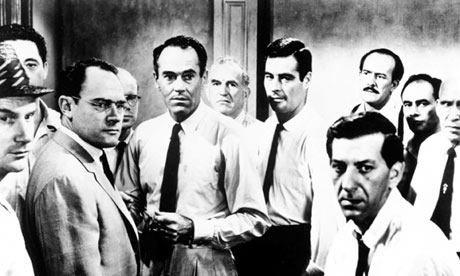'People will forgive you for being wrong, but they will never forgive you for being right - especially if events prove you right while proving them wrong.' Thomas Sowell
Search This Blog
Friday, 2 August 2024
Tuesday, 21 March 2023
From SVB to the BBC: why did no one see the crisis coming?
Michael Skapinker in The FT
Wednesday, 9 February 2022
Sunday, 3 October 2021
How to talk your way to the top
Janan Ganesh in The FT
Always doubt the Stoicism of a “Stoic”. If the point of their creed is cool detachment from the world, the active espousal of it seems perverse, like an anarchist’s fiscal policy. Marcus Aurelius, don’t forget, never meant his Meditations — sales of which boomed even pre-lockdown — to be read. Whether his appropriation by the shamans of modern self-help is his triumph or his ultimate rout, I can’t decide.
Strange, isn’t it, which bits of antiquity we exhume, and which we let lie? The American right wants more of the neoclassical architecture that makes Washington so grand, and so inert. Britain, which is definitely a serious country, is trying to revive Latin in schools. I’d be keener on this Restoration if there were a place for the most sorely missed feature of the ancient world. Bring back, for the sake of the young, the teaching of rhetoric.
I have seen enough meetings, parties, job interviews, broadcast slots, panel events and dates to sense which habits of speech harm a person’s standing with others, sometimes without either side quite knowing it. They include the filler words “like” and, in England, “sort of”, often pronounced, with nervous speed, “siddiv”. They include starting a sentence with, “I guess . . . ” and ending it with, “Does that make sense?” They include, above all, the interrogative tone in non-interrogative statements.
What links these familiar but far from exhaustive examples is their disclosure of self-doubt. And not the endearing kind. “Like” stems from a deep fear of pauses, lest the other person stops listening. Upspeak is a constant probing for approval. These tics are all the worse in a non-American as they suggest a further, almost meta lack of confidence: that in one’s own culture.
The aesthetic case against a lot of modern speech is easy to mount. The challenge is to convince people of the strategic stakes: that mere avoidance of the glitches above will raise their perceived stature.
In today’s economy, few workers get to be judged on output that is discrete and identifiably theirs (such as a newspaper column). More often, they are among the many contributors to a rolling and amorphous process: a corporate merger, say, or IT maintenance. One effect is that, in all candour, I have no idea what most of you do.
Another is that a career can hinge on meetings and other “performances” between the actual doing of work. When someone’s added value is so hard to delineate, the spoken word becomes a clue. And this, to stress, is just the professional risk of modern speech habits. It says nothing of the social and romantic costs of sounding like a teenager from Encino.
The flaw in most self-help is that it dwells on the interior life, rather than outward technique. To exhort someone into a state — of confidence, of Stoicism, of anything — at least in a lasting way, is hard. But small adjustments in what they do can transform their outcomes. And from those real-life gains comes the gradual change in inner state.
I don’t wish I had had, when young, some protein shake-reviewer on YouTube urging me to live in alignment with my values, dude. What I wish I had had was someone to tell me that nothing — not eye-contact, not spread arms — conveys confidence like a mid-sentence pause. Or that a flat, declarative tone in a room full of upspeakers is such an advantage as to be tantamount to cheating. This, which we moderns learn through trial and error, if at all, is what an Athenian would have recognised as rhetoric. It is a life skill, not just or even mainly a political one.
When and why our culture stopped treating it as such, others will know. But the victims are all around us. To speak commandingly does not require a John Updike vocabulary or grammatical exactitude. It does not entail the crushing of regional accents and demotic idioms. I offer Manchester’s own Noel Gallagher as a model to emulate, and legion Sloanes as the inverse. As for America, many decades into upspeak, no one who has that tic of the elite campuses and the modish industries has had a sniff of the White House. The people have, in whatever style, spoken.
Wednesday, 19 March 2014
The importance of failure

Jonathan Trott: mired in a personal trough © AFP
| When nothing is working as it should, as had been the case for Trott since August 2013, convincing oneself that class truly is permanent and that form can only ever be temporary can tax the hardiest of hearts | |||

| |||
Sunday, 24 February 2013
Let's have some sympathy for the jury
My verdict on our justice system

Thursday, 22 November 2012
How to let your kids fail
Don't confuse your success with your children's. Separate yourself from your children. Neither their failures nor their successes are yours. Ask yourself why either matter so much to you.
Don't set unrealistic standards. Allow your children to set their own achievable goals and move on to the next one when they are ready.
Don't punich failure and see it as shameful; this can lead to lying, cheating, defiance, self-doubt and anxiety.
Don't generalise from any setback or mistake. It is not helpful to say, "You'll never be successful in life if you carry on skimping ...."
Don't reject them if they disappoint you or adore them if they succeed. Love them for who they are, not for what they can do.
Don't demand perpetual progress so that no success ever seems good enough. This could lead to anxious perfectionism and burnout.
